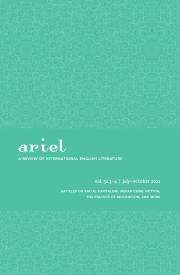The Poetics and Politics of Intersectionality: Trauma and Memory in Caryl Phillips's The Lost Child
Keywords:
Caryl Phillips, intersectionality, trauma and intersectionality, memory and intersectionality, The Lost ChildAbstract
Trauma theory has long been considered more broadly than as the tool explaining Eurocentric, event-based, and nationally experienced traumas that often culminate in atrocities such as war crimes, or the Holocaust. In this article, I will focus on the smaller-scale tragedies of everyday life, and the ways in which trauma theory may benefit from intersectionality. I will analyze how the mechanisms of complex, co-effecting oppressions may turn everyday life into a series of painful experiences in Caryl Phillips’s novel The Lost Child (2015). Philips sketches out the ambiguous and matrix-like effects of gender, race, class, ethnicity, age, cultural position, and education-related marginalization that, in particular circumstances, may intersect in a traumatic manner. I claim that intersectionality might be the way to conceptualize a traumatic life and modes of remembering which remain unrecognizable in terms of instigating event. Intersectionality’s kaleidoscopic vision of trauma is able to grasp the co-constitutive effects of small, ordinary, or quotidian hurtful memories and experiences that easily fade in the face of collective, national, and commemorated traumas. The intersectional framing of individual stories highlights the relative and ambiguous nature of the individual experience as historically, socially, and culturally mediated.


